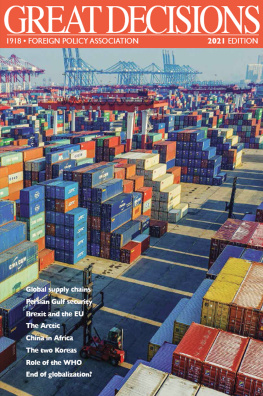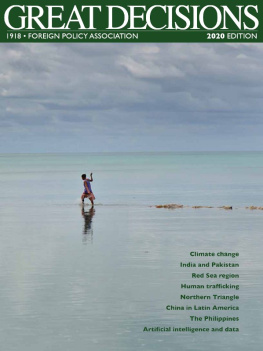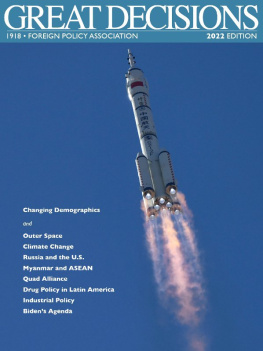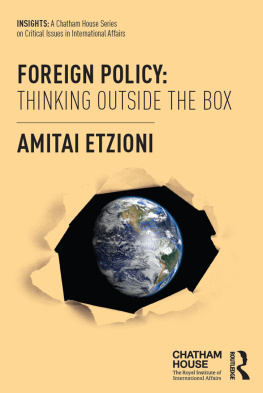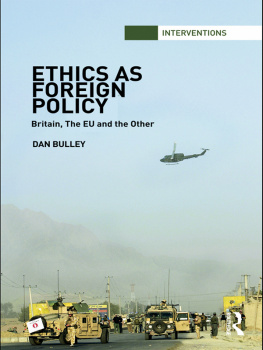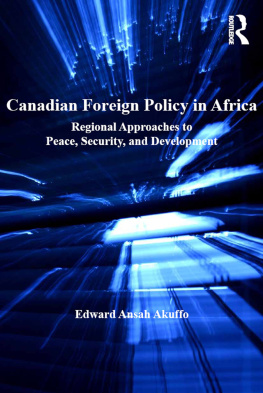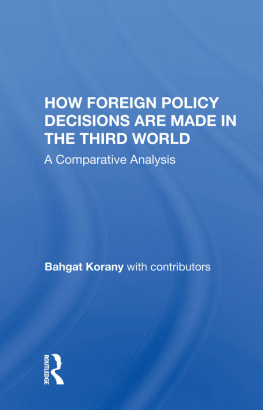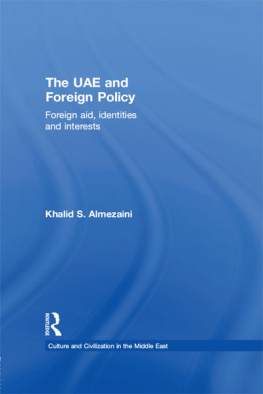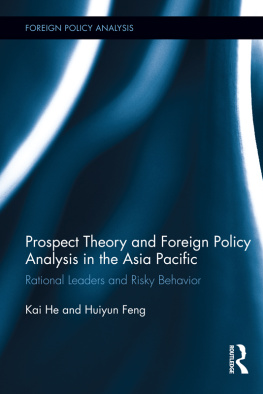To Ann R. Monjo, beloved longtime editor at the Foreign Policy Association, who passed away in May 2020.
About the cover
Containers are seen stacked at a port in Qingdao in Chinas eastern Shandong province on January 14, 2020. Chinas trade surplus with the U.S. narrowed last year as the worlds two biggest economies exchanged punitive tariffs in a bruising trade war.
Photo Credit:(STR/AFP/Getty Images)
GREAT DECISIONS IS A TRADEMARK OF THE FOREIGN POLICY ASSOCIATION.
COPYRIGHT 2021 BY FOREIGN POLICY ASSOCIATION, INC.,
551 FIFTH AVENUE,
NEW YORK, NEW YORK 10176.
All rights reserved.
Researched as of November 22, 2020.
The authors are responsible for factual accuracy and for the views expressed.
FPA itself takes no position on issues of U.S. foreign policy.
The Foreign Policy Association office has moved!
Our new address is:
551 Fifth Avenue, 30th Floor, New York, NY 10176.
GREAT
DECISIONS
Editorial Advisory Committee
CHAIRMAN
David B.H. Denoon
Professor of Politics and Economics New York University
____________________
Barbara Crossette
Specialist on the UN and South-Southeast Asia
Michael Doyle
Harold Brown Professor of International Affairs, Law and Political Science; University Professor Columbia University
Christine E. Lucas
Chief of Operations Leadership Florida, Tallahassee
Lawrence G. Potter
Adjunct Associate Professor of International and Public Affairs, Columbia University
Thomas G. Weiss
Presidential Professor of Political Science The CUNY Graduate Center
Karen M. Rohan
FPA Editor in Chief, Ex officio
Foreign Policy Association
Henry A. Fernandez
Chairman of the Board of Directors
Noel V. Lateef
President and CEO
EDITOR IN CHIEF
Karen M. Rohan
ASSISTANT EDITOR
Matthew Barbari
PHOTO EDITOR
Cynthia Carris Alonso
MAPS
Robert Cronan
Lucidity Information Design, LLC
Rebuilding Trust, Domestic Renewal and U.S. Foreign Policy
W e take great pride at the Foreign Policy Association in presenting the Foreign Policy Association Medal to the Honorable George P. Shultz, who served as the 60th Secretary of State from 1982 to 1989. Reflecting on a life of public service and, coinciding with his one-hundredth birthday, Secretary Shultz has written a remarkable essay, On Trust, in which he sets out his thoughts for meeting foreign policy challenges facing the United States.
At the Foreign Policy Association, we fully endorse the clarion call by Secretary Shultz for a broad national consensus on U.S. foreign policy. Returning to the time-honored tradition of bipartisanship in defining Americas role in the world has never counted for more. Partisan politics should once again end at the waters edge.
To forge such a consensus and to sustain American leadership in the world will require protracted attention to domestic challenges. This is a theme we will emphasize in our programing at the Foreign Policy Association in 2021. U.S. global leadership hinges upon domestic renewal.
The hollowing out of the U.S. middle class can and should be reversed. Stagnant household incomes over the past fifteen years and the coronavirus pandemic pose a real threat to U.S. capacity to play a leadership role in the world.
The Carnegie Endowment for International Peace convened a bipartisan task force to explore what a middle-class focused foreign policy might look like. The Carnegie task force concluded: Administrations of both parties have not done enough to adapt to the changing needs of and stresses on the middle class. What the American public seems to want more than anything else is enlightened international leadership by Washington that is anchored by more and smarter investments at home and a domestic economy that provides more Americans with opportunity and hope for a better future.
The Carnegie task force advocates significantly scaling up public investment in science, worker training, and research and development, and adopting a National Competitiveness Strategy. It is proposed that the Commerce Department lead this mission. Given the many cross-cutting policies that must be shaped and coordinated, perhaps an interagency body would be better suited for this task.
Ways to reignite partnerships among governments, at all levels, universities and the private sector will generate rich programming. At the outset, FPA plans to convene thought leaders to consider how New York City and other urban centers can be reinvented in a post-Covid world.
U.S. national competitiveness can be further enhanced if we engage with our neighbors, Canada and Mexico, to promote a North American competiveness strategy. As the world moves increasingly in the direction of trading blocs, such as the recent Regional Comprehensive Economic Partnership among the Asia-Pacific nations, we must work assiduously to foster North American cooperation. Too often, we have taken our neighbors for granted, and the opportunity costs for them and for us have been lamentably high.

Noel V. Lateef
President and Chief Executive Officer
Foreign Policy Association
The following is excerpted from On Trust by former Secretary of State George P. Shultz:
Now in my hundredth year, I am impelled by recent events to offer my thoughts about what I have come to believe is as crucial an element in public life as it is in private life. I am thinking about trust. We all instinctively, or from personal experience, know that good neighborly relations thrive when neighbors trust one another, and that life can become miserable if trust is replaced with suspicion and doubt. Trust is perhaps a more complex factor in life between communities and nations, but it is just as critical in determining whether cooperation or conflictor even war or peacewill dominate the relationship.
I have become deeply concerned in these last few years that distrust has become a common theme in our domestic life. It is now accepted as normal that our two great political parties rarely find common ground and that legislation to advance the well-being of American citizens can be achieved only under the pressure of a great life-or-death crisis like the COVID-19 pandemic. It has taken a nationally circulated video of a Black mans atrocious murder by a police officer--whose duties included training newcomers to a major American citys police departmentto reveal the depths of racial distrust that exist in our country.
Our relations with much of the rest of the world also have become characterized by distrust bordering on hostility, even in the way Washington deals with close allies in Europe and Asia. We are nearing a Cold War II situation in our relations with China and Russia. Reliance on military threats, with little or no effort at diplomacy, is the most prominent feature of our relations with nations that we associate with anti-American sentiments and actions.

